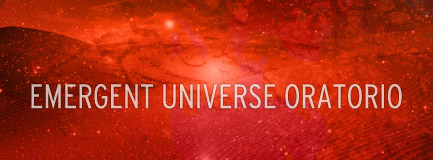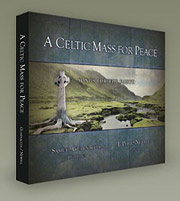
SAMUEL GUARNACCIA, composition
CAMERON DAVIS, visual art
Wendell Berry
Wendell Berry was born in Henry County, Kentucky, in 1934. The author of more than 40 works of fiction, nonfiction, and poetry, Wendell Berry has been the recipient of numerous awards and honors, including a Guggenheim Foundation Fellowship (1962). Critics and scholars have acknowledged Wendell Berry as a master of many literary genres, but whether he is writing poetry, fiction, or essays, his message is essentially the same: humans must learn to live in harmony with the natural rhythms of the earth or perish. The Unsettling of America: Culture and Agriculture, which analyzes the many failures of modern, mechanized life, is one of the key texts of the environmental movement, but Berry, a political maverick, has criticized environmentalists as well as those involved with big businesses and land development. In his opinion, many environmentalists place too much emphasis on wild lands without acknowledging the importance of agriculture to our society. Berry strongly believes that small-scale farming is essential to healthy local economies, and that strong local economies are essential to the survival of the species and the well-being of the planet. He lives and works with his wife, Tanya Berry, on their farm in Port Royal, Kentucky.
Joanna Macy
Eco-philosopher Joanna Macy PhD, is a scholar of Buddhism, general systems theory, and deep ecology. A respected voice in the movements for peace, justice, and ecology, she interweaves her scholarship with five decades of activism. As the root teacher of the Work That Reconnects, she has created a ground-breaking theoretical framework for personal and social change, as well as a powerful workshop methodology for its application. Her wide-ranging work addresses psychological and spiritual issues of the nuclear age, the cultivation of ecological awareness, and the fruitful resonance between Buddhist thought and contemporary science. Joanna travels widely giving lectures, workshops, and trainings in the Americas, Europe, Asia, and Australia. She lives in Berkeley, California, near her children and grandchildren.
Rainer Maria Rilke
Rainer Maria Rilke, was a Bohemian–Austrian poet. He is considered one of the most significant poets in the German language. His haunting images focus on the difficulty of communion with the ineffable in an age of disbelief, solitude, and profound anxiety: themes that tend to position him as a transitional figure between the traditional and the modernist poets. He wrote in both verse and a highly lyrical prose. Among English- language readers, his best-known work is the Duino Elegies; his two most famous prose works are the Letters to a Young Poet and the semi-autobiographical Notebooks of Malte Laurids Brigge. He also wrote more than 400 poems in French, dedicated to his homeland of choice, the canton of Valais in Switzerland.
Gerard Manley Hopkins
Born at Stratford, Essex, England, on July 28, 1844, Gerard Manley Hopkins, a Jesuit, is regarded as one the Victorian era’s greatest poets. He was raised in a prosperous and artistic family. He attended Balliol College, Oxford, in 1863, where he studied Classics. In 1875, Hopkins began to write again after a German ship, the Deutschland, was wrecked during a storm at the mouth of the Thames River. Many of the passengers, including five Franciscan nuns, died. Although conventional in theme, Hopkins poem “The Wreck of the Deutschland” introduced what Hopkins called “sprung rhythm.” By not limiting the number of “slack” or unaccented syllables, Hopkins allowed for more flexibility in his lines and created new acoustic possibilities. In addition to developing new rhythmic effects, Hopkins was also very interested in ways of rejuvenating poetic language. He regularly placed familiar words into new and surprising contexts. He also often employed compound and unusual word combinations. As he wrote to in a letter to Burns, “No doubt, my poetry errs on the side of oddness…” Twentieth century poets such as W.H. Auden, Dylan Thomas, and Charles Wright have enthusiastically turned to his work for its inventiveness and rich aural patterning.
Thomas Berry
Thomas Berry, C.P. (November 9, 1914 – June 1, 2009) was a Catholic priest of the Passionist order, cultural historian and ecotheologian (although cosmologist and geologian — or “Earth scholar” — were his preferred descriptors). Among advocates of deep ecology and “ecospirituality” he is famous for proposing that a deep understanding of the history and functioning of the evolving universe is a necessary inspiration and guide for our own effective functioning as individuals and as a species. He is considered a leader in the tradition of Teilhard de Chardin. Author Michael Colebrook describes two key elements in Thomas Berry’s thinking: “Firstly, the primary status of the universe. The universe is, ‘the only self-referential reality in the phenomenal world. It is the only text without context. Everything else has to be seen in the context of the universe’. The second element is the significance of story, and in particular the universe as story. ‘The universe story is the quintessence of reality. We perceive the story. We put it in our language, the birds put it in theirs, and the trees put it in theirs. We can read the story of the universe in the trees. Everything tells the story of the universe. The winds tell the story, literally, not just imaginatively. The story has its imprint everywhere, and that is why it is so important.
He received his doctorate in history , studied Chinese language and Chinese culture in China and learned Sanskrit for the study of India and the traditions of religion in India. Later he assisted in an educational program for the T’boli tribal peoples of South Cotabataon, a Philippine island, and taught the cultural history of India and China. Later he was director of the graduate program in the History of Religions at Fordham University (1966–1979). He founded and directed the Riverdale Center of Religious Research in Riverdale, New York (1970–1995). Berry studied and was influenced by the work of Teilhard de Chardin and was president of the American Teilhard Association (1975–1987). He has also studied Native American cultures and shamanism.
Brian Swimme
Brian Thomas Swimme is a professor at the California Institute of Integral Studies in San Francisco. He received his Ph.D. from the Department of Mathematics at the University of Oregon in 1978 for work in gravitational dynamics. He brings the context of story to our understanding of the 13.7 billion year trajectory of cosmogenesis. Such a story, he feels, will assist in the emergence of a flourishing Earth community. Swimme is the author of The Hidden Heart of the Cosmos and The Universe is a Green Dragon. He is co-author of The Universe Story, which is the result of a 10 year collaboration with the cultural historian, Thomas Berry. Swimme is also the creator of three educational video series: Canticle to the Cosmos (1990), Earth’s Imagination (1998), and The Powers of the Universe (2006).
www.brianswimme.org
www.journeyoftheuniverse.org
Mary Evelyn Tucker
Mary Evelyn Tucker is a Senior Lecturer and Research Scholar at Yale University where she has appointments in the School of Forestry and Environmental Studies as well as the Divinity School and the Department of Religious Studies. She teaches in the joint MA program in religion and ecology and directs the Forum on Religion and Ecology at Yale with her husband, John Grim. Her concern for the growing environmental crisis, especially in Asia, led her to organize with John Grim a series of ten conferences on World Religions and Ecology at the Center for the Study of World Religions at Harvard (1995-1998) . Together they are series editors for the ten volumes from the conferences distributed by Harvard University Press. In this series she co-edited Buddhism and Ecology (Harvard, 1997), Confucianism and Ecology (Harvard, 1998), and Hinduism and Ecology (Harvard, 2000). Tucker and Grim studied world religions with Thomas Berry in graduate school and worked closely with him for some 30 years. They are the managing trustees of the Thomas Berry Foundation. Tucker edited several of Berry’s books: The Great Work (Random House, 1999), Evening Thoughts (Sierra Club Books and University of California Press, 2006), The Sacred Universe (Columbia University Press, 2009), and with Grim, The Christian Future and the Fate of Earth (Orbis, 2009). To bring Berry’s work forward she has also worked closely with evolutionary philosopher, Brian Swimme, for some 25 years. Together they have created a multi- media project called Journey of the Universe which consists of an HD film, a DVD series of interviews, and a website. The companion book which they authored is published by Yale University Press (2011). She is also a co-editor of another volume bringing science and religion together, When Worlds Converge (Open Court, 2002). Tucker has been involved with the Earth Charter since its inception. She served on the International Earth Charter Drafting Committee from 1997-2000 and is a member of the Earth Charter International Council.
www.emergingearthcommunity.org
www.journeyoftheuniverse.org
John Grim
John Grim is a Senior Lecturer and Research Scholar at Yale University, where he has appointments in the School of Forestry and Environmental Studies as well as the Divinity School and the Department of Religious Studies. He teaches courses in Native American and Indigenous religions and World religions and ecology. He has undertaken field work with the Crow/Apsaalooke people of Montana and Salish people of Washington state. His published works include: The Shaman: Patterns of Religious Healing Among the Ojibway Indians (University of Oklahoma Press, 1983) and, with Mary Evelyn Tucker, a co-edited volume entitled Worldviews and Ecology (Orbis, 1994). With Mary Evelyn Tucker, he directed a 10 conference series and book project at Harvard on “World Religions and Ecology,” He edited Indigenous Traditions and Ecology: The InterBeing of Cosmology and Community (Harvard, 2001) and co-edited the Daedalus volume titled Religion and Ecology: Can the Climate Change? (2001). He is co-founder and co-director of the Forum on Religion and Ecology at Yale with Mary Evelyn Tucker.
www.emergingearthcommunity.org/john-grim
William Blake
Born in 1757 in London, England, William Blake began writing at an early age and claimed to have had his first vision, of a tree full of angels, at age 10. He studied engraving and grew to love Gothic art, which he incorporated into his own unique works. A misunderstood poet, artist and visionary throughout much of his life, Blake found admirers late in life and has been vastly influential since his death in 1827.


 Children's Peace Songs
Children's Peace Songs